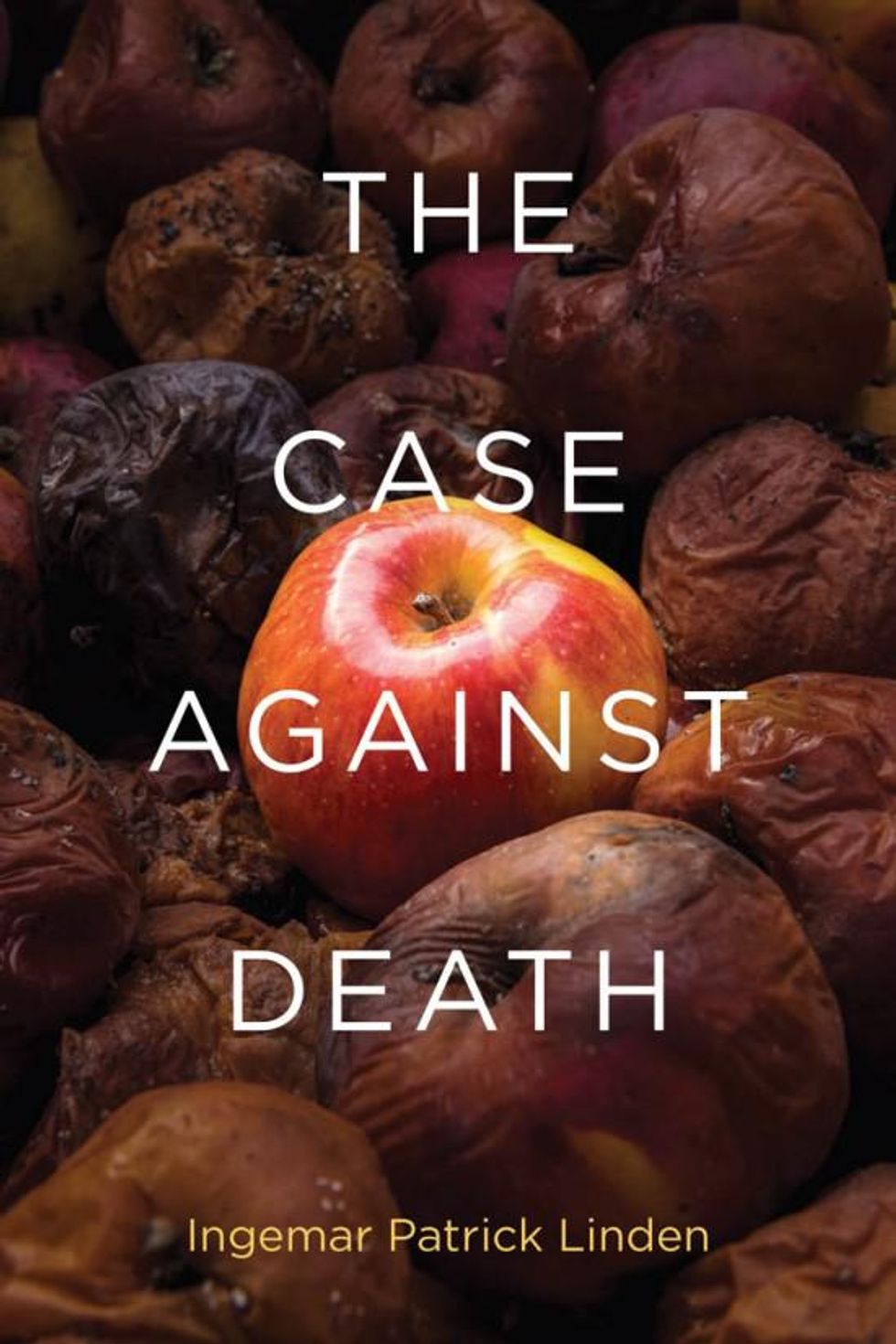Drugs That Could Slow Aging May Hold Promise for Protecting the Elderly from COVID-19

Two recent human studies indicated that rapalogues increased resistance to the flu and decreased the severity of respiratory tract infections in older adults.
Although recent data has shown the coronavirus poses a greater risk to young people than previously understood, the ensuing COVID-19 disease is clearly far more dangerous for older people than it is for the young.
If we want to lower the COVID-19 fatality rate, we must also make fortifying our most vulnerable hosts a central part of our approach.
While our older adults have accrued tremendous knowledge, wisdom, and perspective over the years, their bodies have over time become less able to fight off viruses and other insults. The shorthand name for this increased susceptibility is aging.
We may have different names for the diseases which disproportionately kill us -- cancer, heart disease, and dementia among them – but what is really killing us is age. The older we are, the greater the chance we'll die from one or another of these afflictions. Eliminate any one completely - including cancer - and we won't on average live that much longer. But if we slow aging on a cellular level, we can counter all of these diseases at once, including COVID-19.
Every army needs both offensive and defensive capabilities. In our war against COVID-19, our offense strategy is to fight the virus directly. But strengthening our defense requires making us all more resistant to its danger. That's why everyone needs to be eating well, exercising, and remaining socially connected. But if we want to lower the COVID-19 fatality rate, we must also make fortifying our most vulnerable hosts a central part of our approach. That's where our new fight against this disease and the emerging science of aging intersect.
Once the domain of charlatans and delusionists, the millennia-old fantasy of extending our healthy lifespans has over the past century become real. But while the big jump in longevity around the world over the past hundred years or so is mostly attributable to advances in sanitation, nutrition, basic healthcare, and worker safety, advances over the next hundred will come from our increasing ability to hack the biology of aging itself.
A few decades ago, scientists began recognizing that some laboratory animals on calorie-restricted diets tended to live healthier, longer lives. Through careful experiments derived from these types of insights, scientists began identifying specific genetic, epigenetic, and metabolic pathways that influence how we age. A range of studies have recently suggested that systemic knobs might metaphorically be turned to slow the cellular aging process, making us better able to fight off diseases and viral attacks.
Among the most promising of these systemic interventions is a drug called metformin, which targets many of the hallmarks of aging and extends health span and lifespan in animals. Metformin has been around since the Middle Ages and has been used in Europe for over 60 years to treat diabetes. This five-cent pill became the most prescribed drug in the world after being approved by the FDA in 1994.
With so many people taking it, ever larger studies began suggesting metformin's positive potential effects preventing diabetes, cardiovascular diseases, cancer, and dementia. In fact, elderly people on metformin for their diabetes have around a 20 percent lower mortality than age-matched subjects without diabetes. Results like these led scientists to hypothesize that metformin wasn't just impacting a few individual diseases but instead having a systemic impact on entire organisms.
Another class of drug that seems to slow the systemic process of aging in animal models and very preliminary human trials inhibits a nutrient-sensing cellular protein called mTOR. A new category of drugs called rapalogues has been shown to extend healthspan and lifespan in every type of non-human animal so far tested. Two recent human studies indicated that rapalogues increased resistance to the flu and decreased the severity of respiratory tract infections in older adults.
If COVID-19 is primarily a severe disease of aging, then countering aging should logically go a long way in countering the disease.
These promising early indications have inspired a recently launched long-term study exploring how metformin and rapalogues might delay the onset of multiple, age-related diseases and slow the biological process of aging in humans. Under normal circumstances, studies like this seeking to crack the biological code of aging would continue to proceed slowly and carefully over years, moving from animal experiments to cautious series of human trials. But with deaths rising by the day, particularly of older people, these are not times for half measures. Wartimes have always demanded new ways of doing important things at warp speeds.
If COVID-19 is primarily a severe disease of aging, then countering aging should logically go a long way in countering the disease. We need to find out. Fast.
Although it would be a mistake for older people to just begin taking drugs like these without any indication, pushing to massively speed up our process for assessing whether these types of interventions can help protect older people is suddenly critical.
To do this, we need U.S. government agencies like the Department of Health and Human Services' Biomedical Advanced Research and Development Authority (BARDA) to step up. BARDA currently only funds COVID-19 clinical trials of drugs that can be dosed once and provide 60 days of protection. Metformin and rapalogues are not considered for BARDA funding because they are dosed once daily. This makes no sense because a drug that provides 60 days of protection from the coronavirus after a single dose does not yet exist, while metformin and rapalogues have already passed extensive safety tests. Instead, BARDA should consider speeding up trials with currently available drugs that could help at least some of the elderly populations at risk.
Although the U.S. Food and Drug Administration and Centers for Disease Control are ramping up their approval processes and even then needs to prioritize efforts, they too must find a better balance between appropriate regulatory caution and the dire necessities of our current moment. Drugs like metformin and rapalogues that have shown preliminary efficacy ought to be fast-tracked for careful consideration.
One day we will develop a COVID-19 vaccine to help everyone. But that could be at least a year from now, if not more. Until we get there and even after we do, speeding up our process of fortifying our older populations mush be a central component of our wartime strategy.
And when the war is won and life goes back to a more normal state, we'll get the added side benefit of a few more months and ultimately years with our parents and grandparents.
New study: Hotter nights, climate change, cause sleep loss with some affected more than others
According to a new study, sleep is impaired with temperatures over 50 degrees, and temps higher than 77 degrees reduce the chances of getting seven hours.
Data from the National Sleep Foundation finds that the optimal bedroom temperature for sleep is around 65 degrees Fahrenheit. But we may be getting fewer hours of "good sleepin’ weather" as the climate warms, according to a recent paper from researchers at the University of Copenhagen, Denmark.
Published in One Earth, the study finds that heat related to climate change could provide a “pathway” to sleep deprivation. The authors say the effect is “substantially larger” for those in lower-income countries. Hours of sleep decline when nighttime temperature exceeds 50 degrees, and temps higher than 77 reduce the chances of sleeping for seven hours by 3.5 percent. Even small losses associated with rising temperatures contribute significantly to people not getting enough sleep.
We’re affected by high temperatures at night because body temperature becomes more sensitive to the environment when slumbering. “Mechanisms that control for thermal regulation become more disordered during sleep,” explains Clete Kushida, a neurologist, professor of psychiatry at Stanford University and sleep medicine clinician.
The study finds that women and older adults are especially vulnerable. Worldwide, the elderly lost over twice as much sleep per degree of warming compared to younger people. This phenomenon was apparent between the ages of 60 and 70, and it increased beyond age 70. “The mechanism for balancing temperatures appears to be more affected with age,” Kushida adds.
Others disproportionately affected include those who live in regions with more greenhouse gas (GHG) emissions, which accelerate climate change, and people in hotter locales will lose more sleep per degree of warming, according to the study, with suboptimal temperatures potentially eroding 50 to 58 hours of sleep per person per year. One might think that those in warmer countries can adapt to the heat, but the researchers found no evidence for such adjustments. “We actually found those living in the warmest climate regions were impacted over twice as much as those in the coldest climate regions,” says the study's lead author, Kelton Minor, a Ph.D. candidate at the University of Copenhagen’s Center for Social Data Science.
Short sleep can reduce cognitive performance and productivity, increase absenteeism from work or school, and lead to a host of other physical and psychosocial problems. These issues include a compromised immune system, hypertension, depression, anger and suicide, say the study’s authors. According to a fact sheet by the U.S. Centers for Disease Control and Prevention, a third of U.S. adults already report sleeping fewer hours than the recommended amount, even though sufficient sleep “is not a luxury—it is something people need for good health.”
Equitable policy and planning are needed to ensure equal access to cooling technologies in a warming world.
Beyond global health, a sleep-deprived world will impact the economy as the climate warms. “Less productivity at work, associated with sleep loss or deprivation, would result in more sick days on a global scale, not just in individual countries,” Kushida says.
Unlike previous research that measured sleep patterns with self-reported surveys and controlled lab experiments, the study in One Earth offers a global analysis that relies on sleep-tracking wristbands that link more than seven million sleep records of 47,628 adults across 68 countries to local and daily meteorological data, offering new insight into the environmental impact on human sleep. Controlling for individual, seasonal and time-varying confounds, researchers found the main way that higher temperatures shorten slumber is by delaying sleep onset.
Heat effects on sleep were seen in industrialized countries including those with access to air conditioning, notes the study. Air conditioning may buffer high indoor temperatures, but they also increase GHG emissions and ambient heat displacement, thereby exacerbating the unequal burdens of global and local warming. Continued urbanization is expected to contribute to these problems.
Previous sleep studies have found an inverse U-shaped response to temperature in highly controlled settings, with subjects sleeping worse when room temperatures were either too cold or too warm. However, “people appear far better at adapting to colder outside temperatures than hotter conditions,” says Minor.
Although there are ways of countering the heat effect, some populations have more access to them. “Air conditioning can help with the effect of higher temperature, but not all individuals can afford air conditioners,” says Kushida. He points out that this could drive even greater inequity between higher- and lower-income countries.
Equitable policy and planning are needed to ensure equal access to cooling technologies in a warming world. “Clean and renewable energy systems and interventions will be needed to mitigate and adapt to ongoing climate warming,” Minor says. Future research should investigate “policy, planning and design innovation,” which could reduce the impact of sweltering temperatures on a good night’s sleep for the good of individuals, society and our planet, asserts the study.
Unabated and on its current trajectory, by 2099 suboptimal temperatures could shave 50 to 58 hours of sleep per person per year, predict the study authors. “Down the road, as technology develops, there might be ways of enabling people to adapt on a large scale to these higher temperatures,” says Kushida. “Right now, it’s not there.”
Why we need to get serious about ending aging
With the population of older people projected to grow dramatically, and the cost of healthcare with it, the future welfare of the country may depend on solving aging, writes philosopher Ingemar Patrick Linden.
It is widely acknowledged that even a small advance in anti-aging science could yield benefits in terms of healthy years that the traditional paradigm of targeting specific diseases is not likely to produce. A more youthful population would also be less vulnerable to epidemics. Approximately 93 percent of all COVID-19 deaths reported in the U.S. occurred among those aged 50 or older. The potential economic benefits would be tremendous. A more youthful population would consume less medical resources and be able to work longer. A recent study published in Nature estimates that a slowdown in aging that increases life expectancy by one year would save $38 trillion per year for the U.S. alone.
A societal effort to understand, slow down, arrest or even reverse aging of at least the size of our response to COVID-19 would therefore be a rational commitment. In fact, given that America’s older population is projected to grow dramatically, and the cost of healthcare with it, it is not an overstatement to say that the future welfare of the country may depend on solving aging.
This year, the kingdom of Saudi Arabia has announced that it will spend up to 1 billion dollars per year on science with the potential to slow down the aging process. We have also seen important investments from billionaires like Google co-founder Larry Page, Amazon founder Jeff Bezos, business magnate Larry Ellison, and PayPal co-founder Peter Thiel.
The U.S. government, however, is lagging: The National Institutes of Health spent less than one percent of its $43 billion budget for the fiscal year of 2021 on the National Institute on Aging’s Division of Aging Biology. When you visit the division’s webpage you find that their mission statement carefully omits any mention of the possibility of slowing down the aging process.
There is a lack of political will and leadership on the issue, and the idea that we should seek to do something about aging is generally met with a great deal of suspicion and trepidation. In a large representative study conducted by the Pew Research Center in 2013, only 38% of the respondents said that they would want a treatment that could slow the aging process and allow them to live at least 120 years. Apparently, most people prefer, or at least do not mind, to age and die within a natural lifespan. This result has been confirmed by smaller studies and it is, I think, surprising. Are we not supposed to live in a youth-culture? Are people not supposed to want to stay young and alive forever? Is self-preservation not the strong drive we have always assumed it to be?
We are inundated and saturated with an ideology of death-acceptance.
In my book, The Case against Death, I suggest that we have been culturally conditioned to think that it is virtuous to accept aging and death. We are taught to believe that although aging and death seem gruesome, they are what is best for us, all things considered. This is what we are supposed to think, and the majority accept it. I call this the Wise View because death acceptance has been the dominant view of philosophers since the beginning. Socrates compared our earthly life to an illness and a prison and described death as a healer and a liberator. The Buddha taught that life is suffering and that the way to escape suffering is to end the cycle of birth, death and rebirth. Stoic philosophers from Zeno to Marcus Aurelius believed that everything that happens in accordance with nature is good, and that therefore we should not only accept death but welcome it as an aspect of a perfect totality.
Epicureans agreed with these rival schools and famously argued that death cannot harm us because where we are, death is not, and where death is we are not. We cannot be harmed if we are not, so death is harmless. The simple view that death actually can harm us greatly is one of the least philosophical views one can hold.

In The Case Against Death, philosopher Ingemar Patrick Linden argues that we frown on using science to prolong healthy life only because we're culturally conditioned to think that way.
Many of the stories we tell promote the Wise View. One of the earliest known pieces of literature, the Epic of Gilgamesh, follows Gilgamesh on a quest for eternal life ending with the wisdom that death is the destiny of man. Today we learn about the tedium of immortality from the children’s book Tuck Everlasting by Natalie Babbitt, and we are warned about the vice of wanting to resist death in other books and films such as J.K Rowling’s Harry Potter, where Voldemort must kill Harry as a step towards his own immortality; C.S. Lewis’ The Chronicles of Narnia where the White Witch has gained immortal youth and madness in equal measures; J.R.R. Tolkien’s Lord of the Rings trilogy where the ring extends the wearer’s life but can also destroy them, as exemplified by the creep Gollum; and Doctor Strange where life extension is the one magical power that is taboo. In Star Wars, Yoda, a stereotype of the sage, teaches us the wisdom handed down by philosophers and prophets: “Death is a natural part of life. Rejoice for those around you who transform into the Force. Mourn them do not. Miss them do not.”
We are inundated and saturated with an ideology of death-acceptance. Can the dear reader name one single story where the hero is pursuing anti-aging, longevity or immortality and the villain tries to stop her?
The Wise View resonates with us partly because we think that there is nothing we can do about aging and death, so we do not want to wish for what we cannot have. Youth and immortality are sour grapes to us. Believing that death is, all things considered, not such a bad thing, protects us from experiencing our aging and approaching death as a gruesome tragedy. This need to escape the thought that we are heading towards a personal catastrophe explains why many are so quick to accept arguments against radical life extension, despite their often glaring weaknesses.
One of the most common objections to radical life extension is that aging and death are natural. The problem with this argument is that many things that are natural are very bad, such as cancer, and other things that are not natural are very good, such as a cure for cancer. Why are we so sure that cancer is bad? Because we assume that it is bad to die. Indeed, nothing is more natural than wanting to live. We seem to need philosophers and story tellers to talk us out of it and, in the words of a distinguished bioethicist, “instruct and somewhat moderate our lust for life.”
Another standard objection is that we need a deadline, and that without death we could postpone every action forever. “Death brings urgency and seriousness to life,” say proponents of this view, but there are several problems with this argument. Even if our lives were endless, there would still be many things we would have to do at a certain time, and that could not be redone, for example, saving our planet from being destroyed, or becoming the first person on Venus. And if we prefer pleasant endless lives over unpleasant endless ones, we will have to exercise, eat right, keep our word, develop our talents, show up for time at work, pay our taxes by the due date, remember birthdays, and so on.
The Wise View provides us with a feel-good bromide for the anxiety created by the foreknowledge of our decay and death by telling us that these are not evils, but blessings in disguise. Once perhaps an innocuous delusion, today the view stands in the way of a necessary societal commitment to research that can prolong our healthy life.
Besides, even if we succeeded in ending aging, we would still die from other causes. Given the rate of accidental deaths we would be fortunate to live to age 2000 all things equal. So even if, contrary to what I have argued, we do need a deadline, we can still argue that the natural lifespan that we now labor under is inhuman and that it forces each human to limit her ambitions and to become only a fragment of all that she that could have been. Our tight time constraint imposes tragic choices and inflated opportunity costs. Death does not make life matter; it makes time matter.
The perhaps most awful argument against radical life extension is grounded in a pessimism that holds life in such little regard that it says that best of all is never to have born. This view was expressed by Ecclesiastes in the Hebrew Bible, by Sophocles and several other ancient Greeks, by the German philosopher Arthur Schopenhauer, and recently by, among others, the South African philosopher David Benatar who argues that it is wrong to bring children into the world and that we should euthanize all sentient life. Pessimism, one suspects, largely appeals to some for reasons having to do with personal temperament, but insofar as it is built on factual beliefs, they can be addressed by providing a less negatively biased understanding of the world, by pointing out that curing aging would decrease the badness that they are so hypersensitive to, and by reminding them that if life really becomes unbearable, they are free to quit at any time. Other means of persuasion could include recommending sleep, exercise and taking long brisk walks in nature.
The Wise View provides us with a feel-good bromide for the anxiety created by the foreknowledge of our decay and death by telling us that these are not evils, but blessings in disguise. Once perhaps an innocuous delusion, today the view stands in the way of a necessary societal commitment to research that can prolong our healthy life. We need abandon it and openly admit that aging is a scourge that deserves to be fought with the combined energies equaling those expended on fighting COVID-19, Alzheimer’s disease, cancer, stroke and all the other illnesses for which aging is the greatest risk factor. The fight to end aging transcends ordinary political boundaries and is therefore the kind of grand unifying enterprise that could re-energize a society suffering from divisiveness and the sense of a lack of a common purpose. It is hard to imagine a more worthwhile cause.

